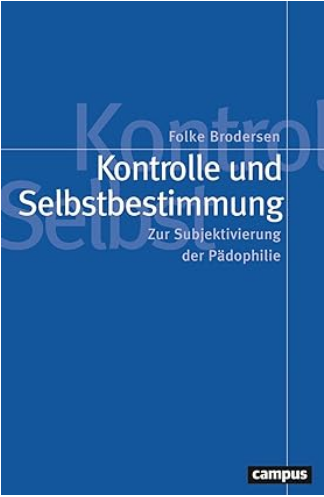Subjectification of Pedophiles at the Boundaries of the Social
Folke Brodersen: Kontrolle und Selbstbestimmung. Zur Subjektivierung der Pädophilie. Campus 2025
DOI:
https://doi.org/10.17169/ogj.2025.364Keywords:
Power, Prevention, Sexuality, Sexual Violence, SubjectificationAbstract
The study examines the modes of subjectivation, and self-positioning of pedophile men based on therapeutic strategies, self-descriptions and social discourses. Sexual control is defined as a power technique that on the one hand enables the pedophile to become a subject and on the other hand stabilizes social structures and social norms. This study is a dense and complex analysis that uses the borderline figure of the pedophile to make social power and structures visible and is therefore informative and relevant to many academic and practice-oriented disciplines.
References
Clark, Adele (2012): Situationsanalyse. Grounded Theory nach dem Postmodern Turn. Herausgegeben und mit einem Vorwort von Reiner Keller. Wiesbaden: Springer.
Kämpf, Katrin (2022): Pädophilie. Eine Diskursgeschichte. Bielefeld: transcript. doi: 10.1515/9783839455777
Michelsen, Danny (2015): Pädosexualität im Spiegel der Ideengeschichte. In: Walter, Franz/Klecha, Stephan/Hensel, Alexander (Hg.): Die Grünen und die Pädosexualität. Eine bundesdeutsche Geschichte. Göttingen: Vandenhoeck & Ruprecht. S. 23–59. doi: 10.13109/9783666300554.23
Mildenberger, Florian (2006): Beispiel: Peter Schult. Pädophilie im öffentlichen Diskurs. Hamburg: Männerschwarm.
Walker, Allyn (2021): A Long, Dark Shadow. Minor-Attracted People and Their Pursuit of Dignity. Oakland: University of California Press. doi: 10.1525/9780520973695

Downloads
Published
How to Cite
License
Copyright (c) 2025 Stefanie Kröber

This work is licensed under a Creative Commons Attribution 4.0 International License.
All contributions in Open Gender Journal are published under the Creative Commons Attribution 4.0 International license. You may freely make use of the corresponding texts in accordance to the conditions of the license (License contract, generally understandable version). There is no exclusive transfer of usage rights ("copyright transfer"). Open Gender Journal does not charge authors any costs for publication (so-called Article Processing Charges, APC) or submission (so-called Submission Charges). Authors are encouraged to share their contributions in other places, such as repositories.












